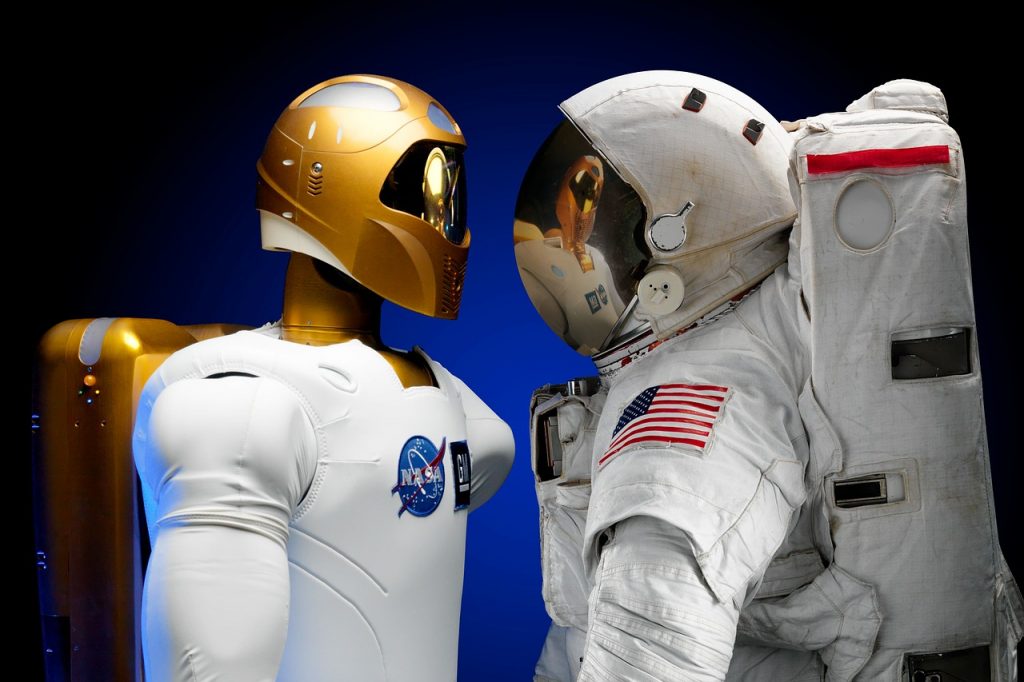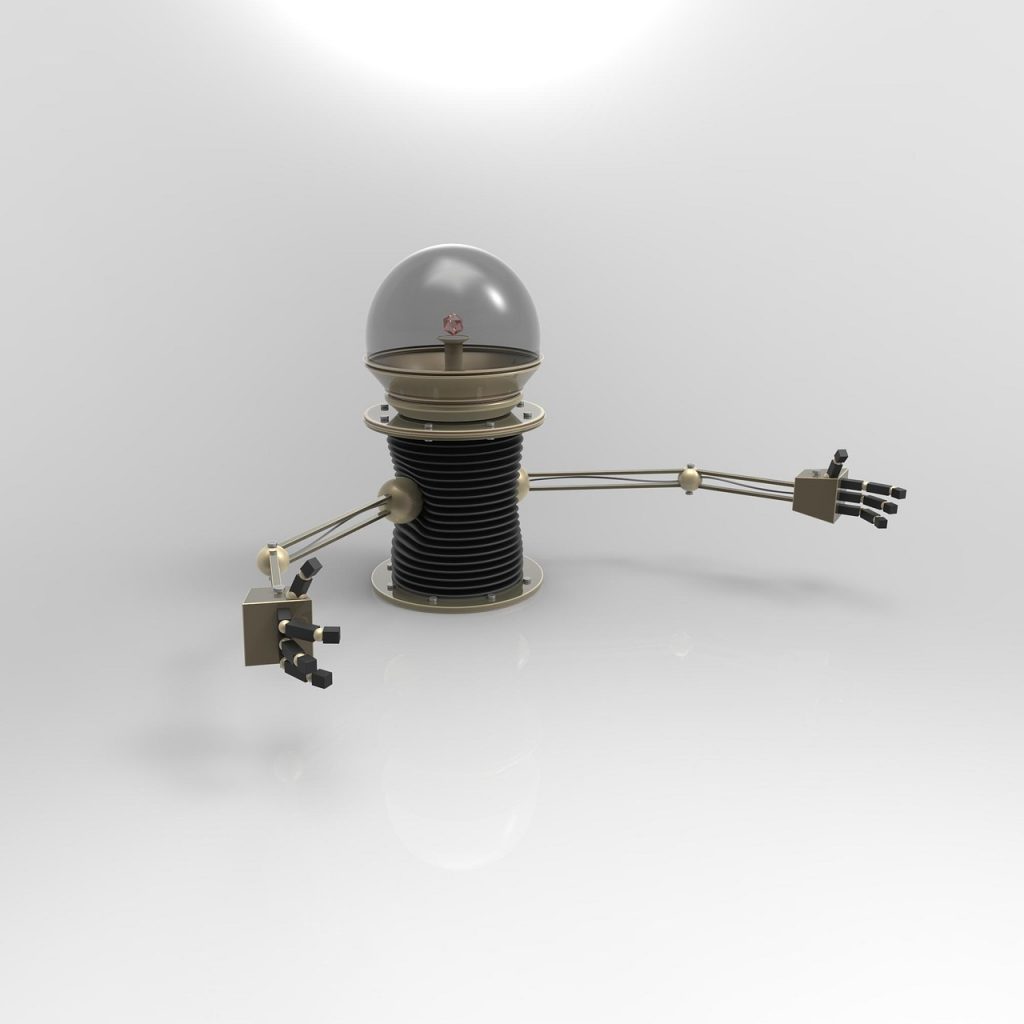Scientists have often made dramatic predictions regarding the future, and one recurring idea that frequently pops up involves sinister robots. Just watch those off-base Terminator movies and see for yourself! (Spoiler alert: America’s ICBMs are not connected to the Internet; Skynet could never launch them.)
With artificial intelligence (AI) quickly gaining traction in different industries, the subject of machine domination has once again taken center stage. Concerns have been raised about AI replacing human workers, but the truth is, it will take more than two decades for robots to be seen as anything but machines.
Why? Because robots are yet to match up to humans when it comes to various skills. So, highly skilled professionals who work in IT won’t have to bow down to your AI overlords or lose your job anytime soon.
Dexterity

You know what’s required to do most jobs? Hands! And our opposable thumbs and nimble fingers are byproducts of millions of years of evolution. Thus, it will take scientists a while to replicate a system that is so complex and precise. The way things are right now, robot hands are no match for human hands.
In fact, the machine hands used in real applications currently are all quite clumsy. Sure, labs have developed more advanced hands, but they are yet to be perfected for mass production. Even then, they will fall short of the dexterity exhibited by human hands.
Power of touch

Technology has given us numerous miracles over the years. But they can never measure up to the wonders of nature itself. Take, for example, animal and human skin containing countless sensors.
There is no equivalent match in the technical world, and scientists are still light years behind in replicating the physical sensations. The perception our human skin provides is necessary for complex manipulation.
Moreover, the software needed to process the input from sensors needs a lot of fine-tuning before it can resemble the human brain. So, robots have no way of interpreting and reacting to messages received from tactile sensors right now.
Manipulation and control
Suppose scientists cracked the code to developing artificial hands with improved skin that could match human digits. A lot of work would still be needed to control them so they could manipulate objects just as a human would. The whole process is a bit of a mystery since children require years to catch onto the habit, and even then their learning mechanisms cannot be wholly understood.
Interaction between humans and AI

Humans interact on the basis of object recognition systems and well-developed speech patterns. Plus, there are lots of other sensors at play, including taste and smell and tactile recognition.
Although considerable strides have been made in object and speech recognition right now, the application of these modern systems is still limited to a controlled environment. So, there is no guarantee that the AI would function just as effectively when extensive performance is necessary.
Tasks vs. jobs
A wave of panic has gripped different industries owing to the belief that embracing AI will lead to the loss of jobs. What they fail to realize is that jobs are different from tasks, and the two are not synonymous.
So, the implementation of AI in various sectors will, of course, disrupt the traditional work balance, but that’s because tasks will get automated rather than jobs.
The distinction between the two is significant. A single job is comprised of various tasks. So, people are not going to lose their livelihood or jobs. Instead, their jobs are going to become a lot easier, thanks to the power of automation performing repetitive tasks and making their workflow more efficient.
Also, machines that finish tedious tasks are going to free up more time, enabling you to take part in creative, challenging, and human-focused tasks.
Although numerous reports claim that the advent of artificial intelligence and automation renders many jobs obsolete, the entire scenario should not be viewed in a binary sense. This is not a fully either/or environment. So, you should not divide jobs based on whether or not they will get automated. Remember, certain jobs are going to be absorbed by technology as they always have.
As machines become more sophisticated and take on menial tasks, new job profiles will be formed, such as analysis and management of insights gained from AI technology. Thus, rather than losing jobs, we will be getting new ones instead. This has been proven throughout history.
But so has human’s ability to panic and make the wrong assumption. Hopefully, reason will triumph and peoples’ fears will be put to rest.
Control our creations
Humans created AI and robots as tools that run as per our instructions. So, technology needs humans to program directives. The very idea that AI will become a substitute for creative thinking, teamwork, leadership, and problem solving is flawed.
Think about it this way — the industry that has experienced the largest disruption of AI and robotics has been medicine.
Now there are plenty of AI tools that perform highly precise surgery and accurate diagnoses. The thing is, none of this has had any negative impact on the number of doctors. The medical professionals have just learned to adapt to the new technology for offering improved healthcare services.
Understanding where you belong in the world of robotics
There is no doubt that AI is going to replace some jobs, but it will be the ones that are dirty, boring, and dangerous. Based on this, people entering the workforce now will have to keep an open mind and learn to become adaptable. They need to be hungry for more knowledge while continuing their education.
Robots will not be able to replace these individuals so easily. What they can do is increase our productivity levels, more than ever before. Workers should start building their own set of technical skills and make sure those skills stay updated while the technology continues to move forward.
If you’re not interested in dealing with technology, try looking for career paths where it does not feature as heavily or where the demand for human talents and skills remain somewhat high. But it is pretty ridiculous to make a huge decision like this because someone is afraid of technology. Technology is everywhere and every career will be affected.
Well, unless you are an artist. Can you paint?
Replaced by robots?
With the introduction of new services and products, artificial intelligence has established itself as an indispensable part of our environment.
But that does not mean robots are out to take over our positions. Only when the human race extinguishes their passions and desires will robots finally take over our jobs. And that doesn’t seem very likely to happen in the near future.
Featured image: Pixabay



